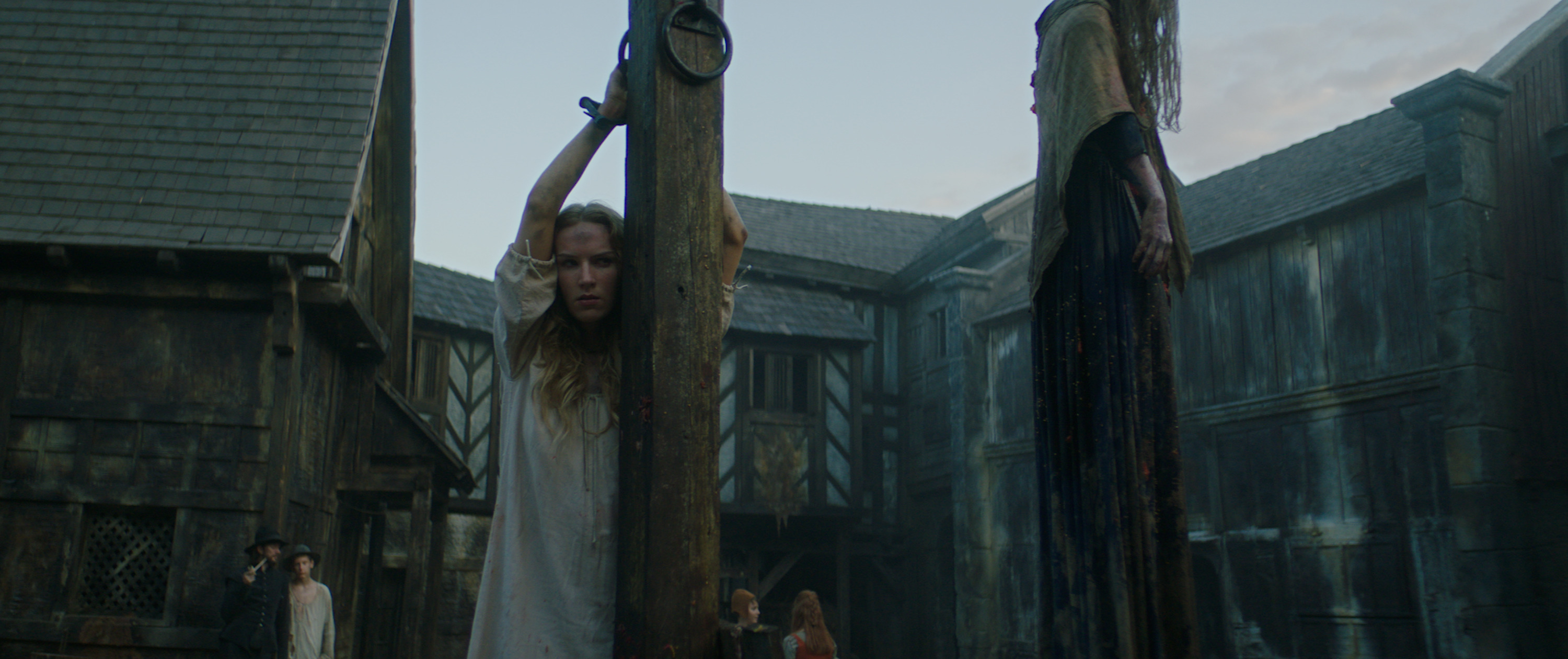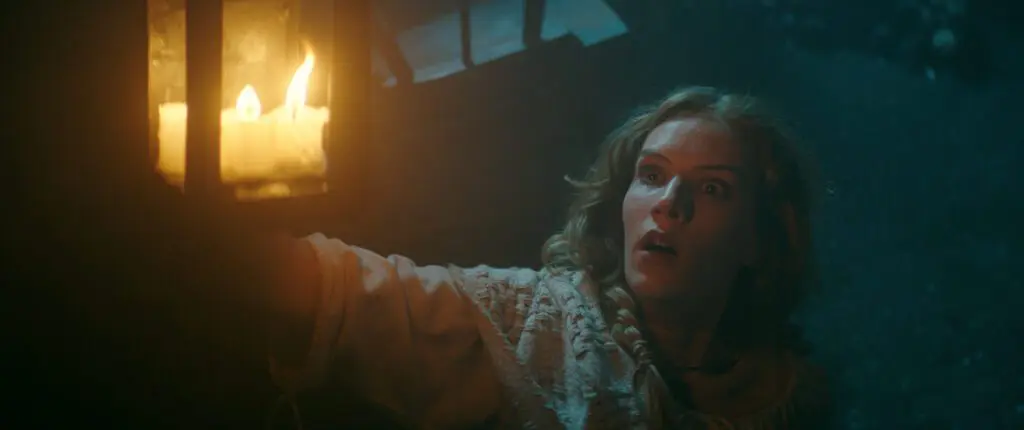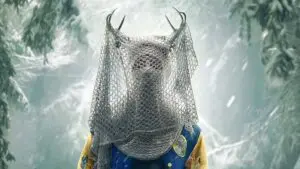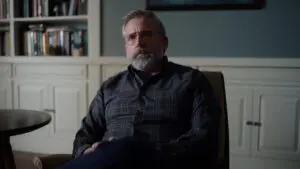Summary
Bad film: shallow writing with plenty of torture and showing off instead. Not what I expected from the director behind Dog Soldiers.
Good news, I thought: a new Neil Marshall film. I was wary though, as it was about someone accused of witchcraft, and I feel like we’ve had enough of those by now. Turns out I was right to be wary: The Reckoning looks good, but it’s not good; so much so, that I’m struggling with motivation to write about it.
The Reckoning is set in England (though filmed in Hungary) in 1665; and for those watching from outside these shores, there is some brief narrative at the start about the plague and superstition. The film is primarily about young Grace Haverstock (Charlotte Kirk), a farmer who is widowed at the beginning. Squire Pendleton (Steven Waddington), local big shot and her landlord, tells her she can pay her rent by other means if things prove difficult, and indeed attempts to stake his claim by force. Pendleton finds himself humiliated and so plants a rather strong rumor that Grace is a witch – just out of spite; he can’t really have anything to gain – but when she won’t confess and give in to him, he sends for the notorious witchfinder, Judge Moorcroft (Sean Pertwee). The latter two-thirds of the film are largely given to Moorcroft’s interrogation and torture, and to Grace’s resistance.
Those are the key people in the film, with everything hanging on Grace. There are some interesting minor characters too, such as Grace’s (departed) husband, her one and only female friend, the servant at the jail who takes pity, the witchfinder’s assistant Ursula, oh, and the Devil, who appears in Grace’s dreams (but whether she was plagued by him or inspired by him I could never quite tell). None of the characters have much depth though, and only one – Ursula (Suzanne Magowan) – even requires any. The vast majority of this miserable dramatis personae are two-dimensional period clichés that could fit right at home in a young adult paperback.

The Reckoning isn’t a supernatural horror: those accused of witchcraft don’t curse their oppressors, and Satan doesn’t smite them down on their behalf either. There are no spells, broomsticks, or pointy hats. The horror here is all in the torture, and this is definitely not a film for the squeamish. That said, the majority of what is inflicted on Grace is suggested, rather than explicitly shown, though we see after-effects (which seem to wear off after a nap); and the most gruesome image on screen is of violence done to someone else. Marshall wants us to think about what is being done to Grace (played by his fiancée), not see it. He has essentially made a fancy dress, sadistic love letter to his partner (scripted by her) in which he gets to show her off to the world. This is torture porn at its most voyeuristic: Grace is whipped, cut, and sexually violated in front of a wide-eyed crowd, and denied sleep when the performance is done, but still presented to us viewers writhing in her delirium.
All this takes place over four days, and Grace still looks glamorous, no matter what. From the start, I thought she is surely wearing make-up not appropriate for a seventeenth-century farmer; and by the end, I thought how can she still be standing? The story alleges to be “inspired by true events”, but surely none of Grace’s coping or reactions were realistic in the slightest. Neil Marshall made Dog Soldiers and The Descent: he knows how to make people grubby, but Grace stays lovely throughout, with barely a smudge to her eye shadow. Perhaps she was a witch after all.
The writing is so damned shallow too: The Reckoning is clearly all about the period setting and costumes, Charlotte Kirk, and the torture. It could have been about more. A couple of closing lines on the screen do not compensate for the lack of social awareness within the film. The plague itself is not much more than a plot device to get the accusations started: it’s forgotten about completely by the time the witchfinder arrives (no social distancing amongst the gawkers). Yes, I know I’m being blunt but this film wound me up. Apart from glossy camera work and melodramatic music, The Reckoning is hardly different from one of the racier Hammer horror films set in the same period.



